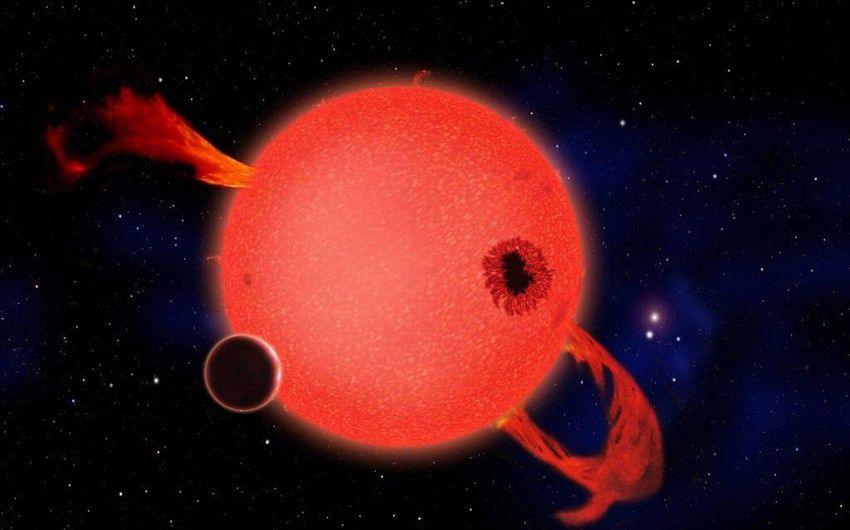Astronomers find Planet Evaporating in its Star's Orbit

By Alimat Aliyeva
American scientists from the Massachusetts Institute of Technology (MIT) have uncovered a rare and dramatic cosmic phenomenon: a planet that is quite literally evaporating as it orbits its star, Azernews reports.
The exoplanet, designated BD+05 4868 b, lies about 140 light-years away in the constellation Pegasus. What makes it extraordinary is the massive tail of mineral dust it leaves behind — stretching a staggering 9 million kilometers, like a comet of stone.
Roughly the size of Mercury or Earth’s Moon, the planet orbits an orange dwarf star once every 30.5 hours, traveling in an ultra-tight path that brings it 20 times closer to its star than Mercury is to the Sun.
At this blistering proximity, the planet's surface heats to an estimated 1,600°C (2,912°F) — hot enough to vaporize rock, turning its crust into rivers of magma. With every orbit, BD+05 4868 b sheds material equivalent to the mass of Mount Everest — about 350 billion tons — forming a colossal dust plume that glows as it disintegrates in real time.
The discovery was made using NASA’s TESS (Transiting Exoplanet Survey Satellite), which detected subtle, periodic dips in the star’s brightness caused by the planet and its dust tail passing in front of it.
Scientists believe this doomed world may not have formed in such a harsh orbit. Instead, it was likely flung inward by the gravitational influence of another massive body — a process that may be common in chaotic young planetary systems.
What excites astronomers most is the opportunity to study the planet’s evaporating material. Using the James Webb Space Telescope, researchers hope to analyze the composition of the dust plume, which may contain elements from the planet’s crust, mantle, or even core. If successful, this could provide an unprecedented window into the geology of rocky exoplanets — all without ever having to leave Earth.
Studying this fiery, dissolving world will not only reveal how planets die, but also shed light on how planetary systems form, evolve, and sometimes, violently fall apart.
Here we are to serve you with news right now. It does not cost much, but worth your attention.
Choose to support open, independent, quality journalism and subscribe on a monthly basis.
By subscribing to our online newspaper, you can have full digital access to all news, analysis, and much more.
You can also follow AzerNEWS on Twitter @AzerNewsAz or Facebook @AzerNewsNewspaper
Thank you!
